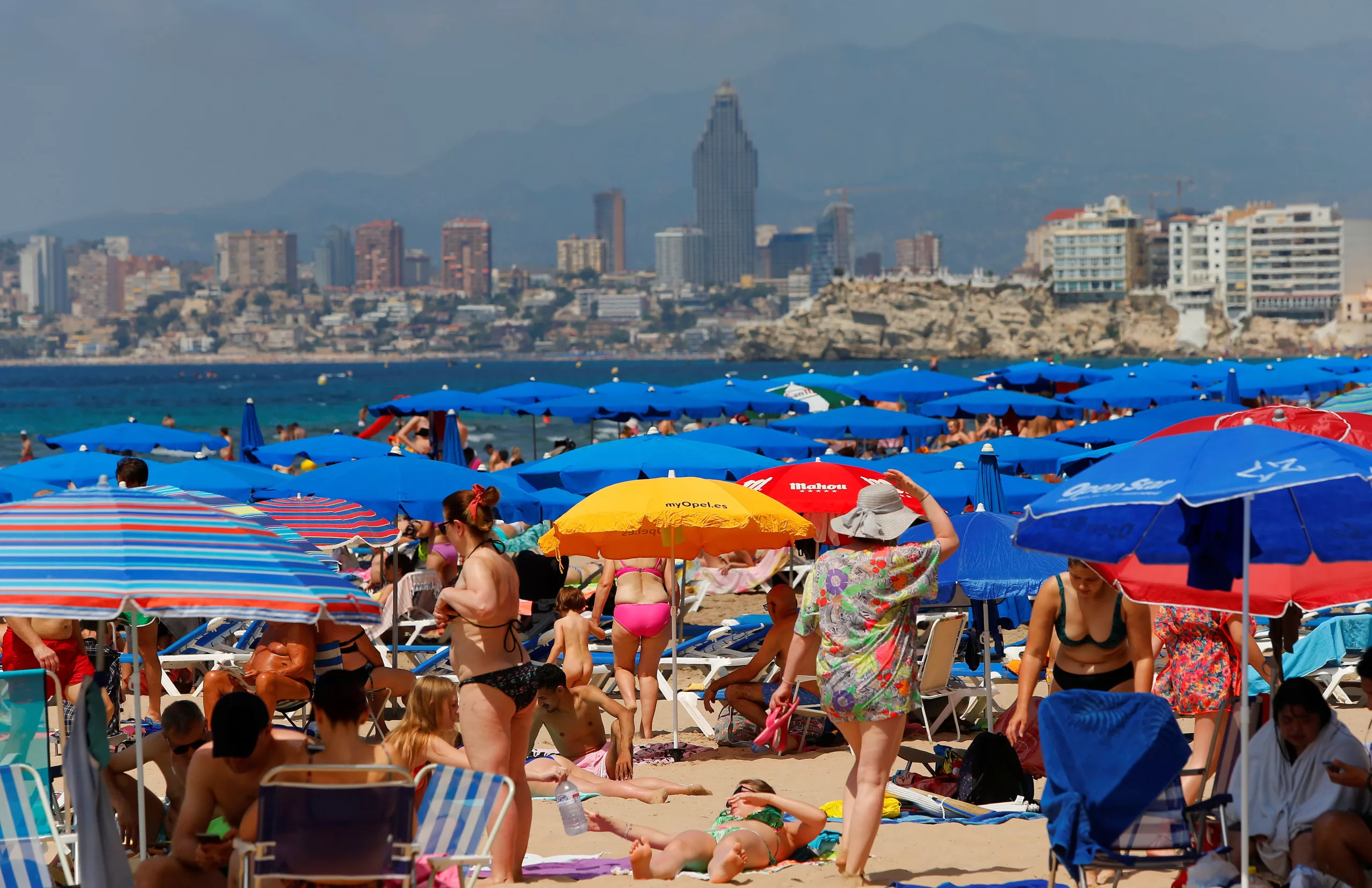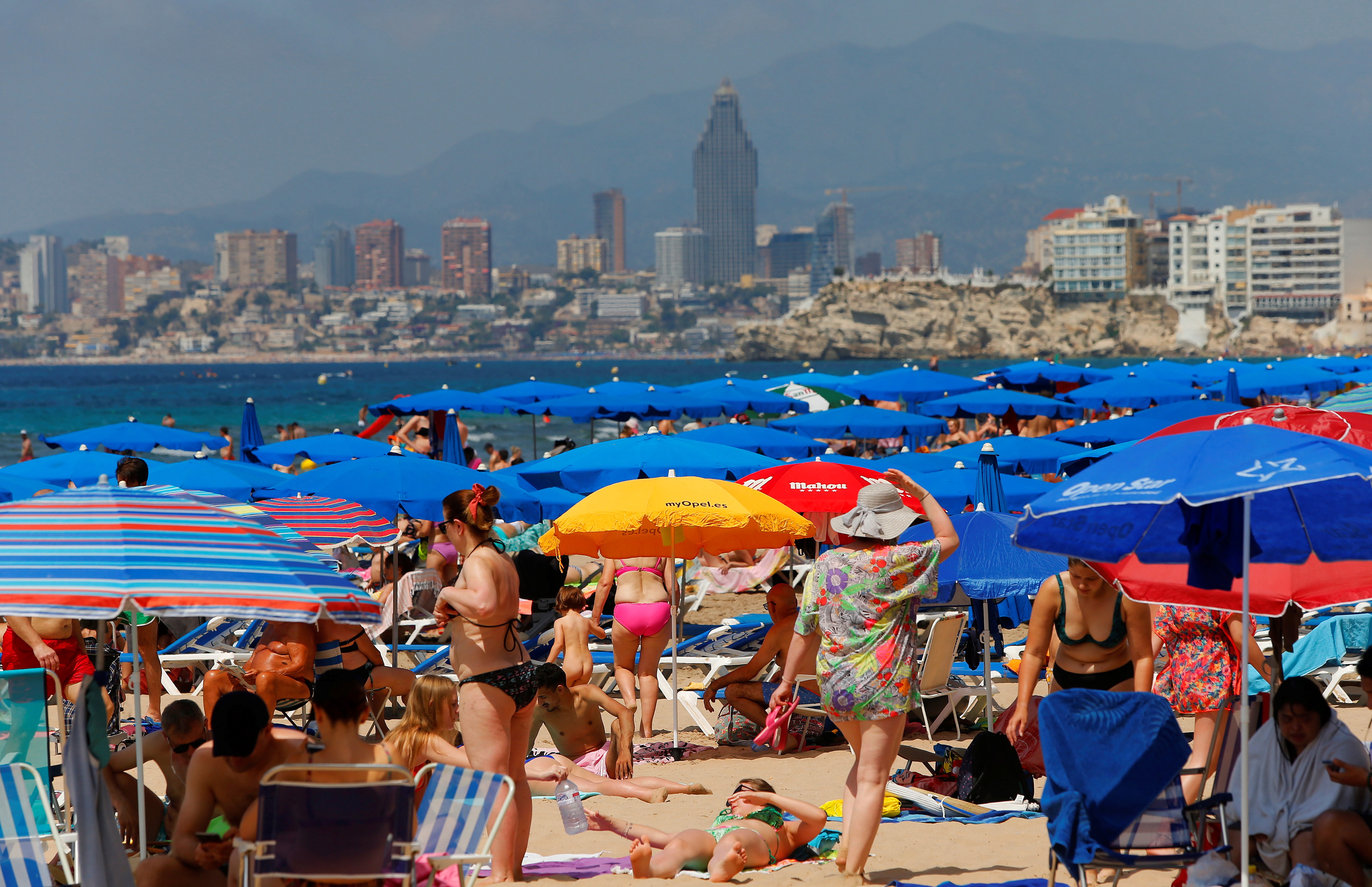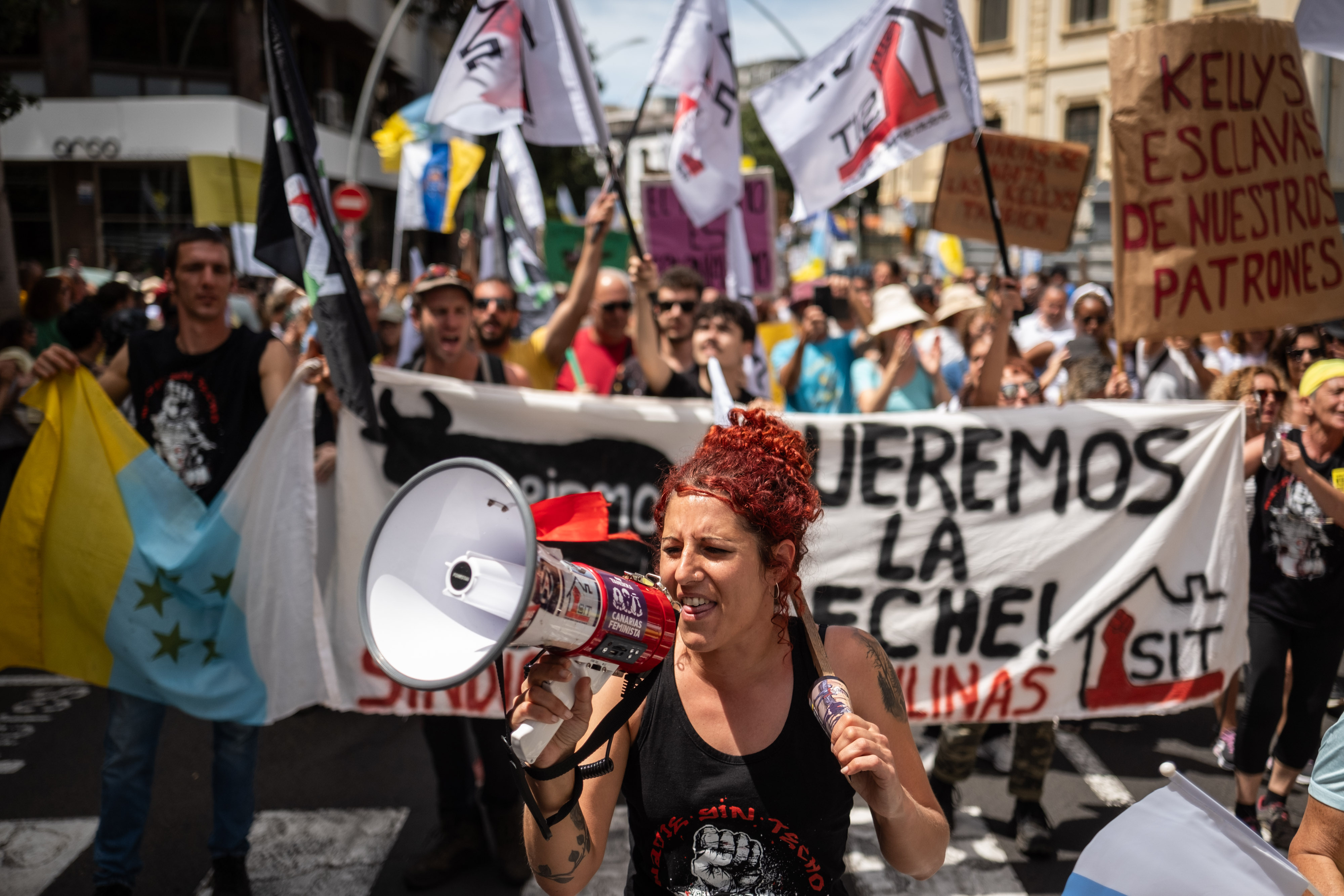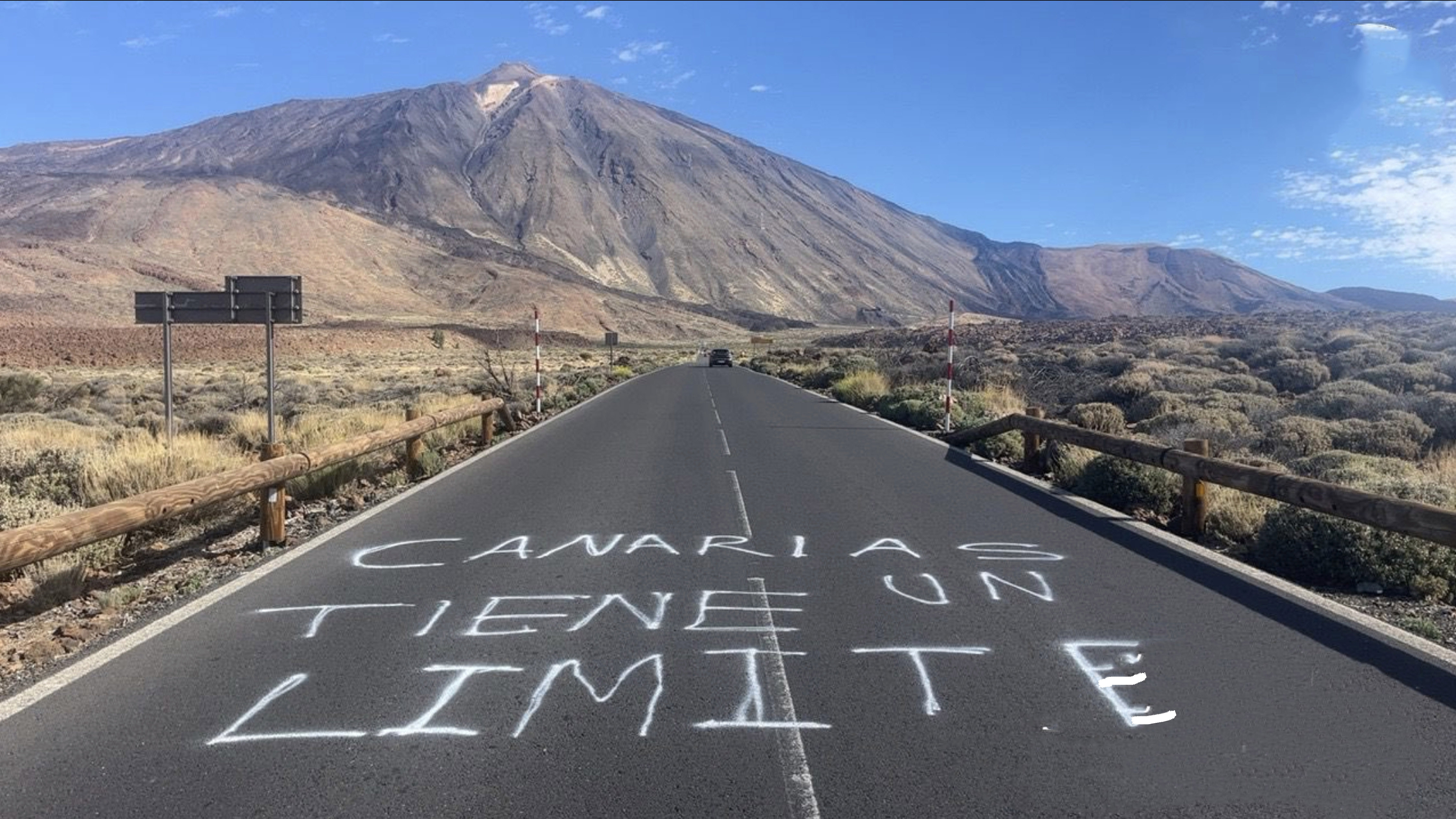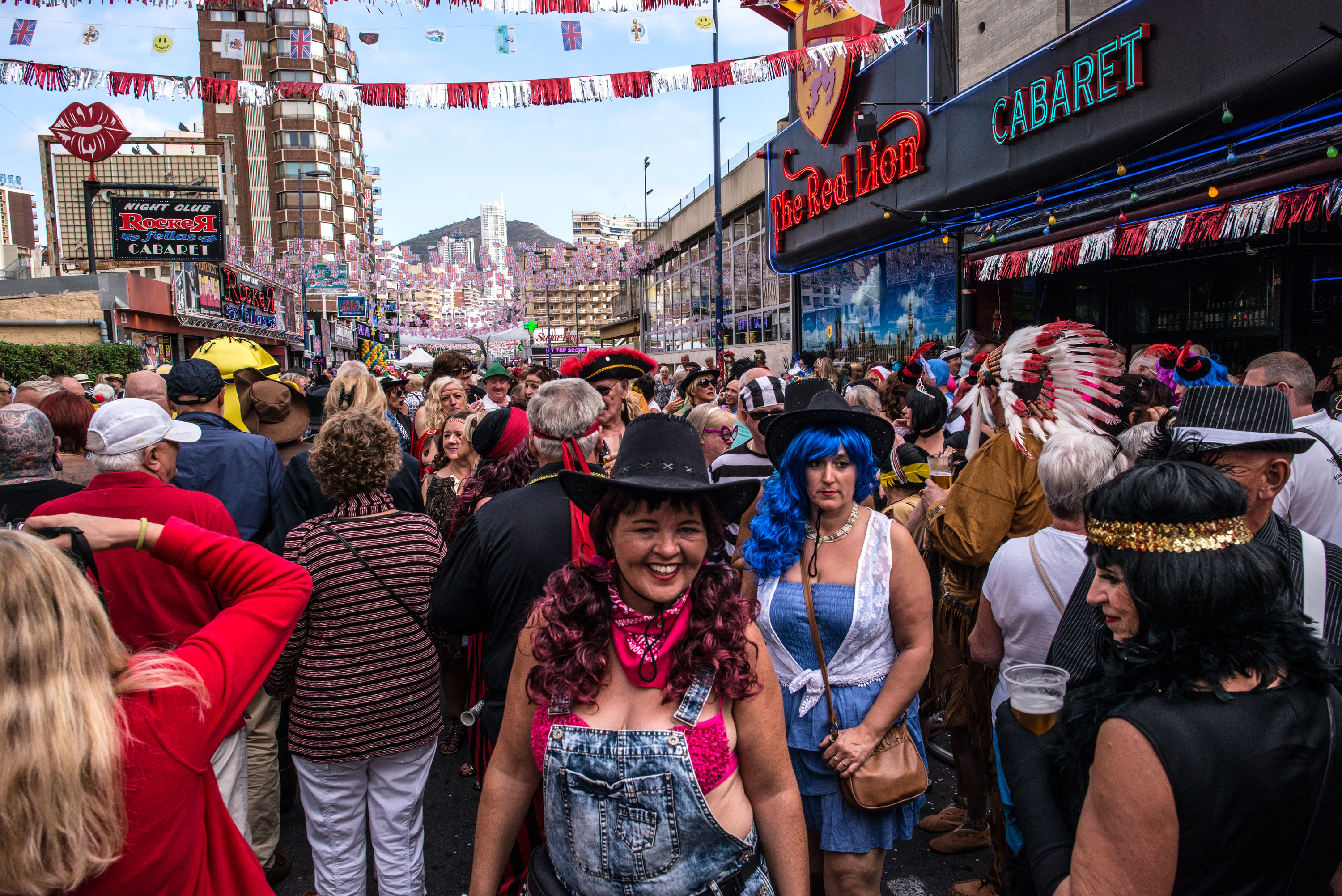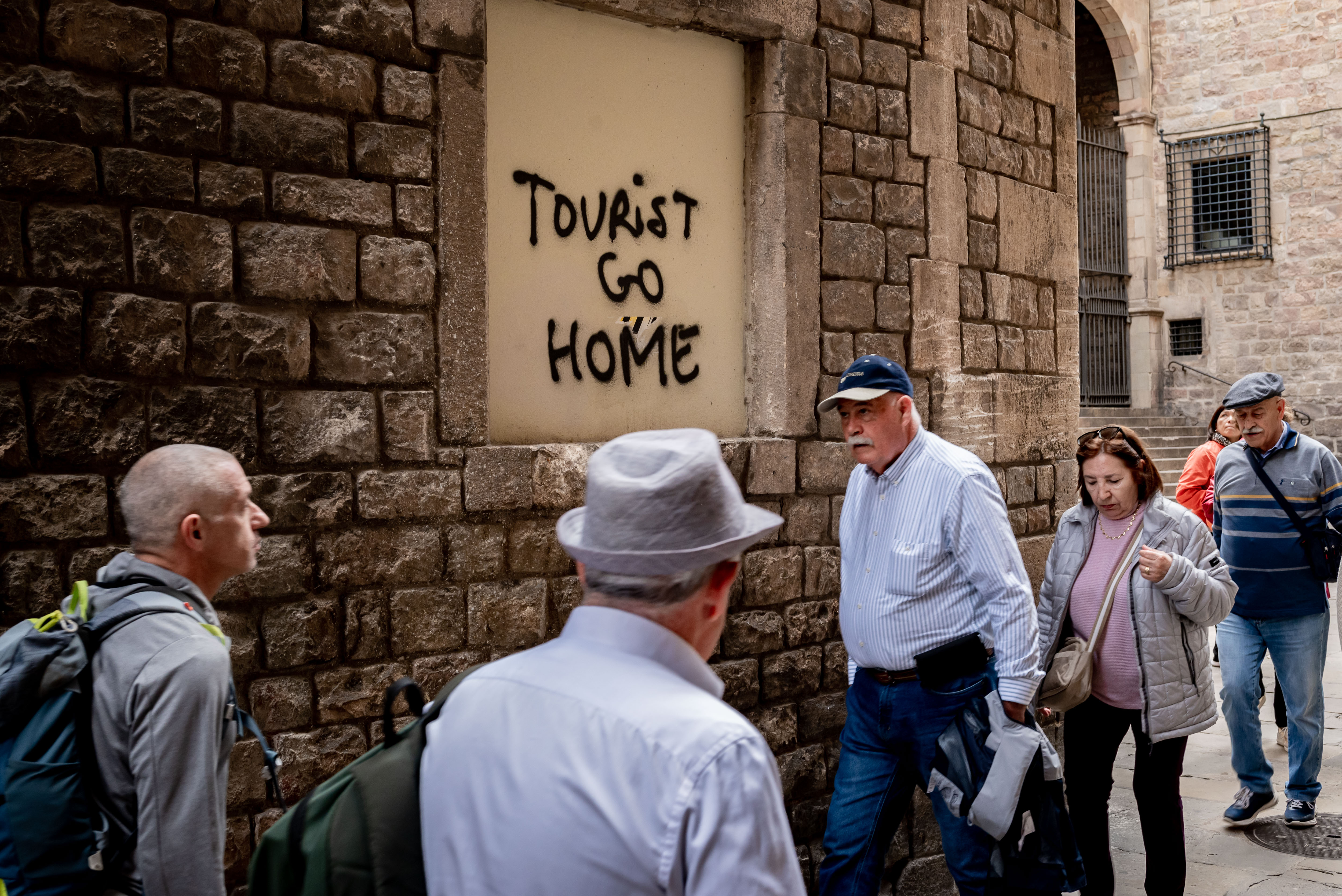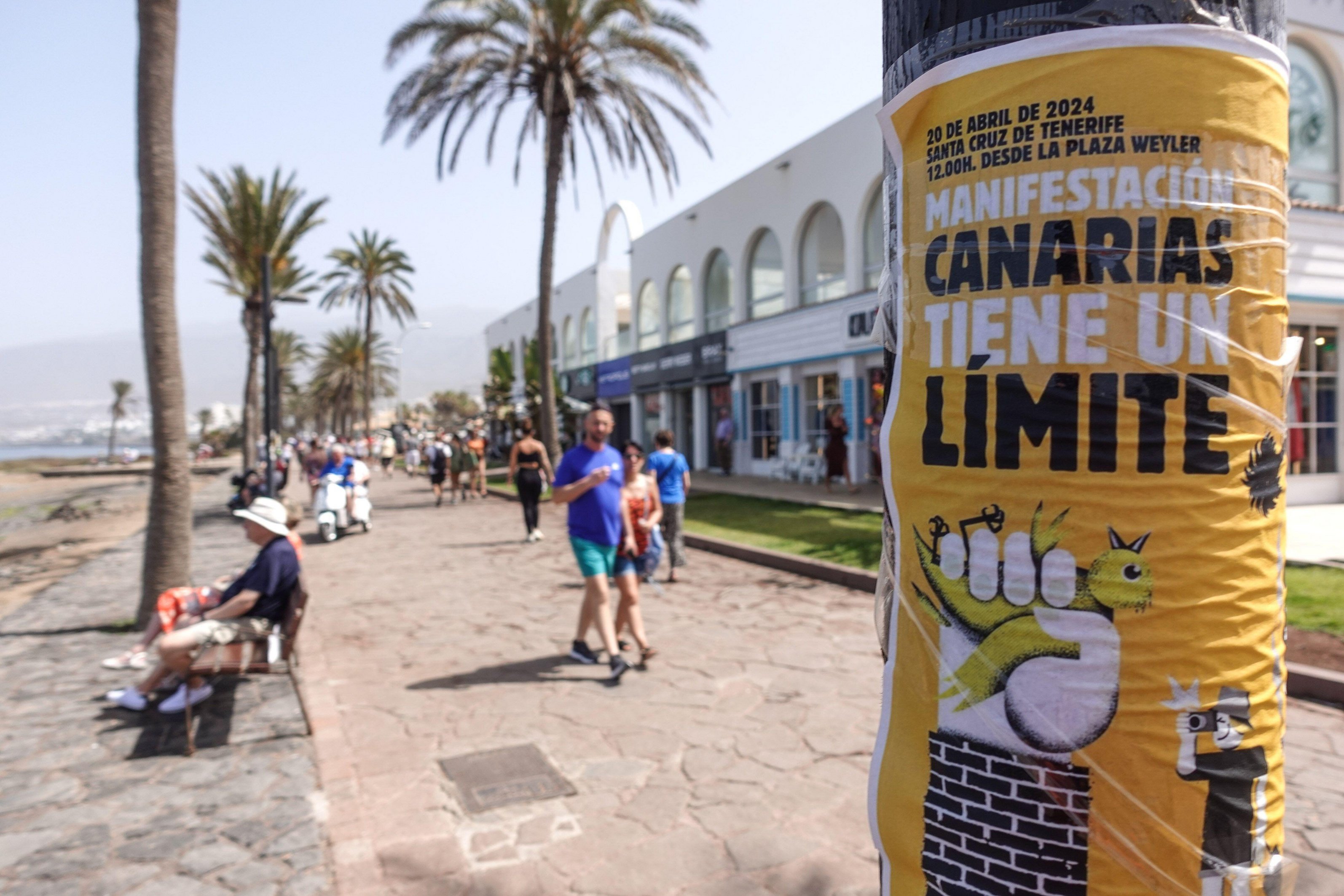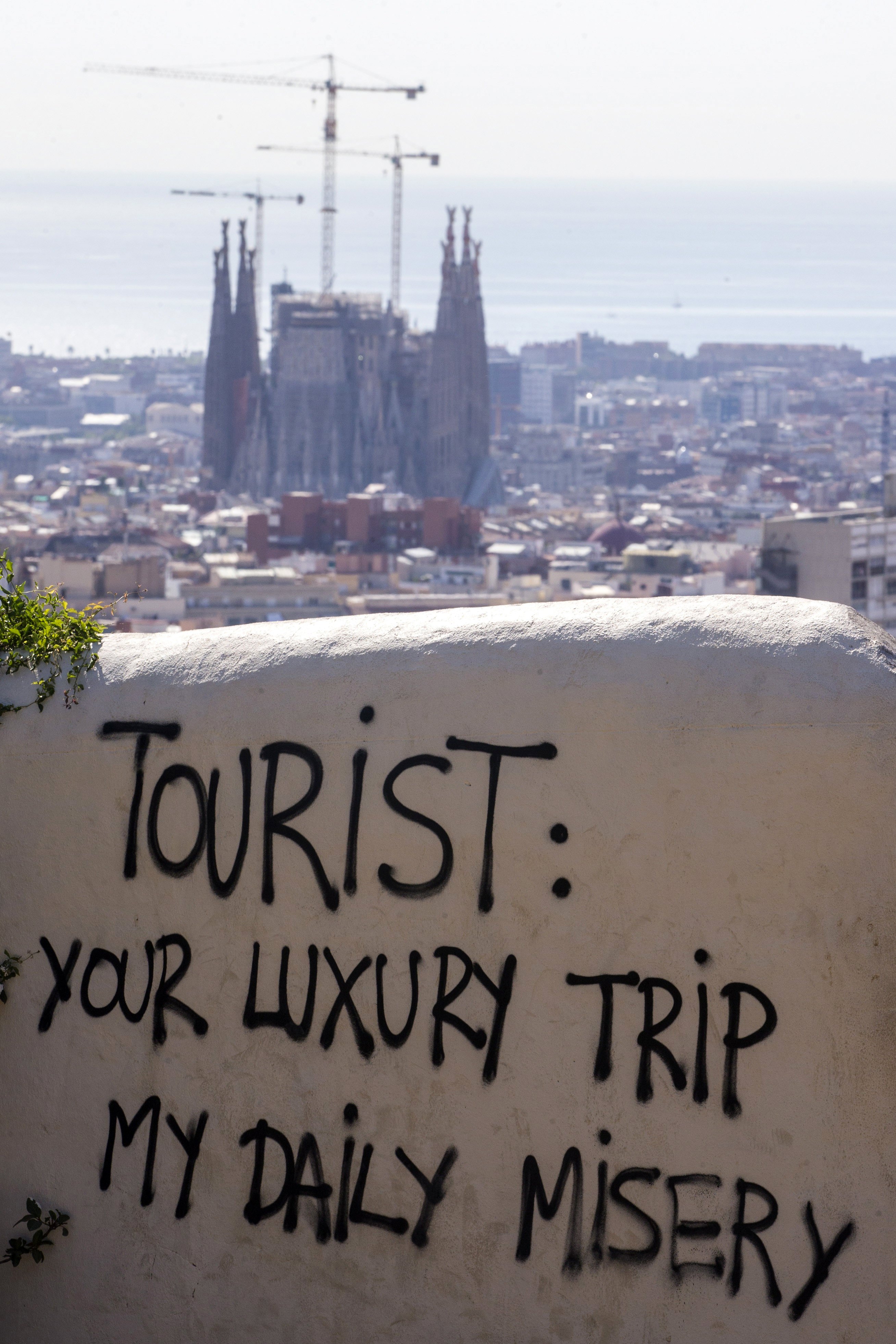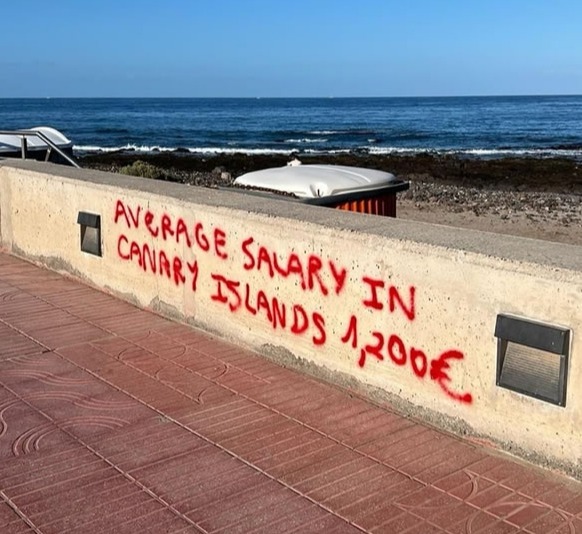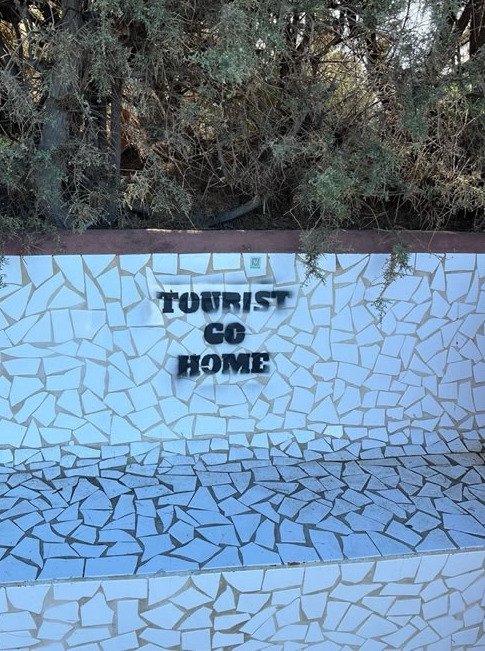Hotel bosses in Benidorm have admitted they are “very worried” by the anger growing amongst island residents but branded holiday homes in Spain a “virus”.
Fede Fuster, head of local hotel association HOSBEC, said the demonstrations across the Atlantic archipelago, showed there were serious problems that needed to be addressed.
In a speech in the Costa Blanca resort of Altea, he said: “We watched with concern how people in the Canary Islands protested a few days ago against the ‘negative’ effects of tourism.
“This is serious, it should worry us and occupy our minds. The delicate balance between tourists and residents that we have been able to maintain for decades has been broken.”
Last weekend, huge fury-filled protests were staged across the Canary Islands in a bid to crackdown on cheap tourism and particularly boozy Brits.
In Tenerife, which saw 15,000 turn up, a hunger strike is still ongoing and a new protest is planned for today in the town of La Laguna.
Fuster fumed that those involved who were pointing the finger at hoteliers were confusing the “righteous for sinners”.
Instead, he launched an attack on the expansion of holiday rental homes by claiming: “The genesis of this virus is called the hotelisation of housing and the digital platforms are its carrier.
“In the last 15 years, this type of accommodation has grown from 4,000 beds to more than 400,000 throughout Spain, far outstripping the supply of regulated accommodation.
“What used to be residential land is now being hotelised for the benefit of a few who, moreover, operate with the most absolute impunity.
“And those who are suffering the consequences are our neighbours, our employees, our families, and all of us who compete fairly.”
Benidorm has its own British area known as “Little England” and at certain times of the year UK tourists occupy nearly 50 per cent of all hotel beds in the famous Costa Blanca resort.
Fuster also had a dig at the Spanish government for not making tourism “part of its priorities.”
He argued that tourism should be seen as a “source of wealth for society” rather than a threat.
“Tourist destinations are the best showcase for a country that can boast a high standard of living and great potential when it comes to being an example of sustainable planning and development.”
Canarias Se Agota, the organisation behind last Saturday’s demonstrations across the Canary islands, has organised a new march later today in the northern Tenerife town of La Laguna.
Six men and women affiliated to the protest platform – which rallies under the banner of “The Canary Islands have a limit” – are now on the 17th day of their hunger strike.
Supporters who join the march have been asked to bring a suitcase “to show how locals are being ejected from the islands.”
Many are calling on regional president Fernando Clavijo to answer either their demands or resign.
Yesterday, Tenerife paved the way for tourists to be charged to visit the island’s natural spaces including the iconic Teide mountain starting January 1 next year.
Its politicians voted to introduce the eco tax for non-residents following a viability study.
Tenerife, an island long popular with British tourists, has been at the forefront of the protests linked to the type of mass tourism it attracts.
This week, a leading Tenerife politician urged British and Irish tourists looking for cheap sunshine breaks to go elsewhere for their vacations.
Carlos Tarife, deputy mayor for the island capital Santa Cruz, said holidaymakers interested in staying in their all-inclusive hotels should book places like the Dominican Republic instead.
Earlier this month, anti-tourism graffiti popped up all around the island telling Brits to go home.
“My misery is your paradise” and “Average salary in Canary Islands is 1,200 euros” has been seen splashed across walls.
In an apparent UK backlash, a response left in English on a wall next to a “Tourists go home”, a message said: “F*** off, we pay your wages”.
The protests organisation, Canarias Se Agota, has insisted it has nothing to do with the graffiti.
In turn, they angrily accused regional politicians of blaming them of tourism-phobia as part of a “dirty tricks” campaign.
Why are locals in Tenerife raging against Brit tourism?
RESIDENTS of the largest Canary Island seem to be at war with UK holidaymakers as they blast visitors with anti-tourism graffiti and emerging local campaigns.
Locals have been fuming that they are “fed-up” with “low quality” Brit tourists who only come for the cheap beer, burgers and sunbathing.
Now, they are demanding a tourist tax, fewer flights to the island and a clampdown on foreigners buying houses.
Some protesters are claiming that their anger is directed at the government rather than tourists as they ask for change.
They claim that AirBnBs and other holiday rentals are driving up the cost of living and that they are sick of the noise, traffic and rubbish that accompany the avalanche of vacationers that visit every year.
Jaime Coello, president of the Telesforo Bravo Foundation, said: “The quality of the tourist product is being destroyed by the investors and the regional government.”
Waves of anti-tourist graffiti has been sprayed across the island to tell Brits they are not welcome.
Bitter messages outside tourism hotspots read “your paradise, our misery” and “tourists go home”.
“Locals are forced to move out and YOU are responsible for that,” said a furious printed sign.
Another read: “Tourists go home!”
The brewing chaos coupled with hatred for visitors is now scaring Brit tourists to go on a vacation in Tenerife.
And Jorge Marichal, a hotel chain boss in Tenerife, revealed that Brits were ringing up out of fear they would not be safe on their holidays to the island.
He said: “One of the problems I am facing is that clients are beginning to call and ask what’s happening here and whether it’s safe.”
While the hotel owner said he understands the pain of local people, he added that being “anti-tourist” is not the way to go in.
